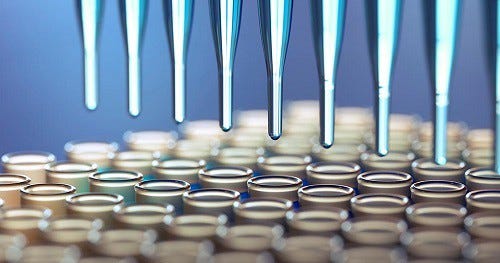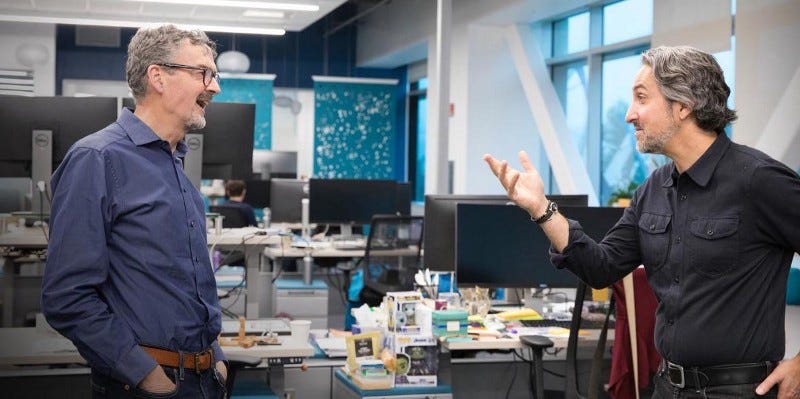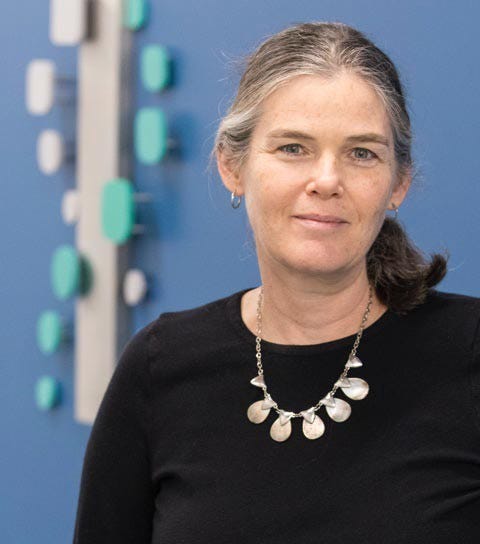Why We Invested: insitro
Among humankind’s most impactful achievements over the past century have been the discoveries of new chemical and biological drugs (e.g…
Among humankind’s most impactful achievements over the past century have been the discoveries of new chemical and biological drugs (e.g., antibiotics, vaccines, antimalarial drugs, etc.) that have collectively saved or improved the lives of billions of people around the world. It is no overstatement to say that the drug industry has had an impact on nearly everyone living today and continues to play an important role in our society. This has been highlighted by the current COVID-19 pandemic and the important ongoing search for a vaccine and treatments for the disease.
In fact, more than $1 trillion is spent each year on drugs worldwide (an average of $100+ per person each year), making the drug industry one of the world’s largest in terms of both impact and revenue. It is also one of the industries that is most dependent on a stream of continual innovation, both in its tools and products. In the past few decades, the drug industry has benefitted from increasing adoption of new technologies ranging from vertical-specific software to lab automation to new life sciences tools and techniques such as next-generation sequencing, induced pluripotent stem cell (iPSC) technology, and CRISPR-Cas genome editing.
However, in a seeming paradox given the many advances in relevant technologies, drug discovery has actually become less efficient and more expensive over time, an observation known as Eroom’s Law (Moore’s Law spelled backwards). In fact, a 2012 study found that since 1950 the inflation-adjusted cost to develop each new drug that has made it to market has risen around 80-fold (source), and the average capitalized R&D investment to bring a new drug to market was recently estimated to be $1.3bn+ (source).

This is one of the reasons why many new drugs are so expensive. Drug companies need to earn enough profit on average from each new drug that makes it to market to offset the average cost that it takes to discover, develop, gain regulatory approval for, produce, and commercialize each one. However, the pre-commercialization steps alone cost a fortune and have become increasingly more expensive over time. The rising average cost of drug discovery and development has therefore necessitated a downstream rise in the average price of new drugs, increasing the economic burden of healthcare on society and making many new drugs unaffordable to certain segments of the population.
To solve this problem requires re-thinking the drug discovery and development process from start to finish. In the past few years, we have spoken with hundreds of innovative companies in this space, but very few of them, in our opinion, have had the necessary long-term vision, talent, and capital to successfully pioneer a new approach that could truly solve this problem.
Then we met the brilliant team at insitro, who opened our eyes with their ambitious vision of building the first end-to-end drug company powered from the ground up by big data and machine learning. Rather than default to traditional drug discovery approaches (which produce biological data primarily through bespoke assays for narrow purposes) or train their machine learning models on just the existing data in the public or private domain (which is what many companies at the intersection of drug discovery and machine learning do), insitro is intent on transforming the drug discovery process by using iPSC-based disease modeling, CRISPR-based genetic perturbations, end-to-end lab automation, high-content phenotyping, and other tools and techniques to conduct thousands of experiments in parallel and generate hundreds of terabytes (and eventually petabytes) of proprietary data specifically for training machine learning models that can accurately understand disease biology, identify drug targets, and design drug candidates better than the world’s leading human experts. insitro’s novel approach combines biology with computer science at a fundamental level, hence the name “insitro” which is a portmanteau of in silico (biological experiments performed on the computer) and in vitro (biological experiments performed in the lab).
In order to bring their vision to life, insitro has brought together a unique, world-class team of ~65 people with expertise in both computer and life sciences. This team is led by insitro’s CEO / founder Daphne Koller, a pioneer in machine learning who has spent much of her career advancing the application of machine learning to biomedical sciences and previously co-founded/co-led Coursera (now valued at $1bn+). insitro’s other leadership team members include: (1) CTO Ajamete Kaykas, who previously led an early target discovery team focused on neuroscience at Novartis; (2) CBO / CFO Mary Rozenman, who formerly served as the SVP of Corporate Development & Strategy at Aimmune Therapeutics; and (3) Chief Data Officer Serafim Batzoglou, who most recently served as the VP of Applied & Computational Biology at Illumina.
More broadly, half of insitro’s technical team comprises computer science and machine learning experts, many with PhDs from world-class research institutions such as Stanford University and MIT and/or years of experience at industry-leading technology companies like Google. The other half of insitro’s technical team comprises life science experts, many with PhDs from world-class research institutions such as Harvard University, the University of Cambridge, and MIT and/or years of experience at industry-leading biotech / pharmaceutical companies like Genentech and Novartis. Unlike most other drug companies, insitro has brought together the most talented people from both worlds and enabled them to work together in a single team rather than in silos. Each person is then able to bring his/her own unique perspective on what insitro is doing and come up not only with better answers, but also better questions. By year’s end, insitro plans to expand its team to ~95 people; hence, the company is currently actively recruiting for the best and brightest talent.

In addition, insitro has thoughtfully partnered with some of the best and most long-term-focused investors in the space including Vijay Pande of Andreessen Horowitz, Bob Nelsen of ARCH Venture Partners, Jim Tananbaum of Foresite Capital, Krishna Yeshwant of GV, and Reid Huber of Third Rock Ventures, as well as Bezos Expeditions, BlackRock, Casdin Capital, CPP (Canada Pension Plan) Investments, Mubadala, T. Rowe Price, Two Sigma, Verily, and WuXi AppTec. This backing has enabled insitro to make the significant upfront investment in infrastructure and data generation required to execute its novel, transformative strategy.
insitro has achieved stellar progress in just 2 short years. Beyond bringing together a world-class team and investor base, the company has already built a cutting-edge high-throughput laboratory, established robust and scalable data infrastructure, generated hundreds of terabytes of high-quality data, and trained/validated numerous machine learning models that perform better than human experts and other state-of-the-art models in the public domain. insitro has also made significant progress building data-driven iPSC-derived models for several diseases and has already identified preliminary drug targets for further validation.
Not only has insitro made great strides in validating its technical approach, the company has also achieved strong market validation, including a publicly announced 3-year strategic collaboration with leading drug company Gilead to help discover treatments for patients with non-alcoholic steatohepatitis (NASH). Under the terms of this collaboration, insitro has already received an upfront payment of $15m from Gilead and is eligible to receive more than $1bn of potential milestone payments and royalties. Beyond Gilead, many other leading drug companies have also reached out to insitro and are interested in similar partnerships.
insitro is focusing initially on debilitating and potentially fatal diseases that are influenced by genetics. Its partnership with Gilead is focused on NASH, which afflicts an estimated 15m+ people (i.e., 12% of the general adult population) in the US alone and can lead to a potentially life-threatening condition called cirrhosis (i.e., late-stage scarring of the liver), but still has no FDA-approved medication. insitro is also interested in targeting genetically-influenced central nervous system (CNS) diseases, many of which still have no cure.
In insitro, we had finally found a team that had the long-term vision, talent, and capital needed to succeed in disrupting the drug industry. We believe that if they succeed in their mission, they will ultimately become one of the world’s most important drug companies, bringing to market novel best-in-class interventions for NASH and other genetically-influenced diseases and enhancing the quality of life for tens or hundreds of millions of people worldwide. Hence, we’re excited to partner with them on their journey as they transform the drug discovery and development process and help bring down the cost of healthcare for patients around the world.
– Victor Wang, Paul Quigley, and Hisham Elhaddad




